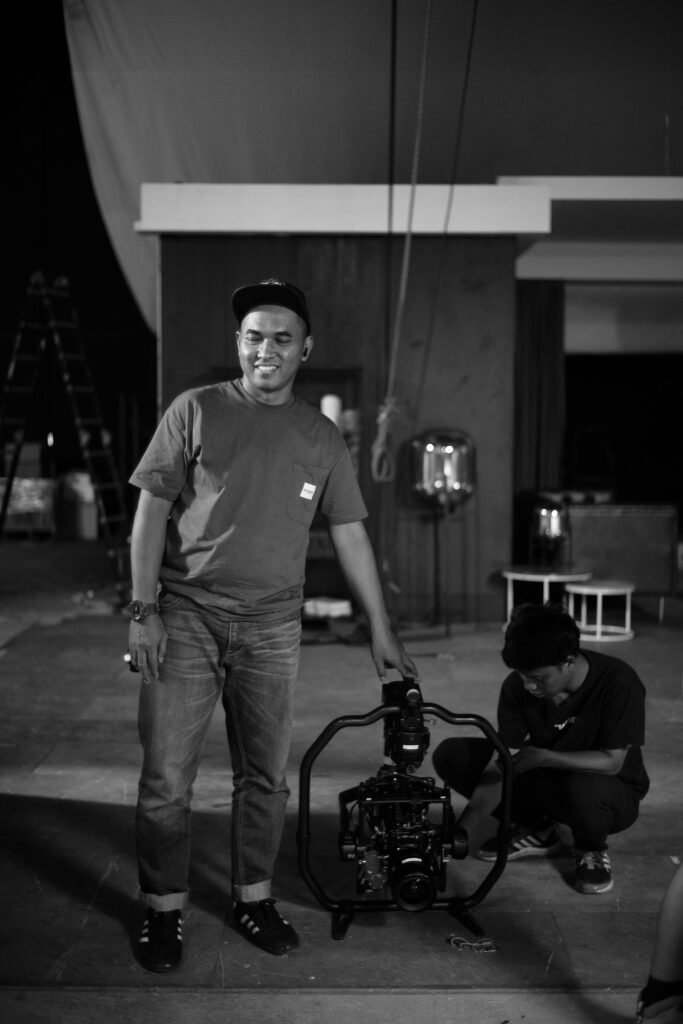Advice
How to Master Filmmaking Through Continuous Learning
In the ever-evolving world of independent filmmaking, each project presents an invaluable opportunity for growth. Whether it’s a box office hit or a small festival debut, every experience comes with lessons that can sharpen both your artistic vision and business strategy. By actively reflecting on your successes and setbacks, you can transform challenges into stepping stones for future projects. Here’s how to harness the power of continuous learning to elevate your filmmaking career:

Conduct a Post-Project Debrief
Once a project wraps, don’t rush into the next one without first taking time to reflect. Gather your key team members and dive into a full-scale post-mortem. Analyze every phase of the production—from pre-production through distribution. This collaborative reflection brings together different perspectives, helping you pinpoint areas for improvement and celebrate the moments that worked best.
Break Down Your Creative Choices
Your film’s impact hinges on creative decisions—so take a hard look at how well your artistic choices played out on screen. Were your characters compelling? Did certain scenes resonate more with audiences? Understanding the strengths and weaknesses in your storytelling is crucial for refining your vision and improving how you translate ideas into cinematic moments.
Examine Production Efficiency
Even the most creative projects need strong production workflows. Review how efficiently your shoot ran—did any issues slow down the process? Perhaps scheduling conflicts caused delays, or maybe specific equipment proved problematic. Identifying these roadblocks allows you to fine-tune production processes for smoother, more cost-effective shoots in the future.
Assess Budget vs. Actual Spending
Budgeting is the backbone of any film project. Carefully analyze how your budget was allocated versus where the money actually went. Were there areas of overspending? Could you have allocated resources more wisely? Evaluating this can help you create more accurate budgets and get more value from every dollar on your next project.
Review Marketing and Distribution Performance
Your film doesn’t end with the final edit—what happens after is just as important. Reflect on your marketing and distribution strategies: What promotional tactics generated the most buzz? How did your chosen distribution platforms perform? By understanding what worked (and what didn’t), you can craft smarter strategies for reaching and engaging your audience in the future.
Gather Feedback from All Angles
Don’t just rely on your internal review—seek feedback from a range of sources. Audiences, critics, and industry professionals can offer perspectives you might not have considered. Honest feedback helps you see your film through different lenses, allowing you to better understand how it resonates with various viewers.
Document Your Learnings
Create a “playbook” of sorts by documenting the insights and lessons you’ve gathered from your project. This record will become a valuable resource as you move forward, helping you avoid repeating mistakes and drawing from successful strategies to optimize future films.
Identify Skill Gaps
Reflection often highlights areas where you can grow. Maybe you need to brush up on new camera technologies or develop a stronger understanding of digital marketing. Acknowledging these skill gaps allows you to target specific areas for improvement, ensuring you’re always evolving as a filmmaker.
Set Clear Goals for Your Next Project
After reflecting on what you’ve learned, it’s time to set actionable goals for your next project. These can be creative—like experimenting with a new genre—or business-oriented, such as building stronger industry connections to secure better distribution deals.
Stay Informed About Industry Trends
The filmmaking landscape is constantly shifting, from new technologies to evolving audience preferences. Stay on top of industry trends between projects by attending conferences and film festivals, following industry news, and experimenting with new platforms. This knowledge ensures your future films are relevant and innovative.
Network and Share Insights
Building a strong network is invaluable in independent filmmaking. Connect with other filmmakers, share your experiences, and learn from theirs. Engaging with the filmmaking community not only broadens your knowledge but also solidifies the lessons you’ve learned, giving you new ideas to apply on your next project.
Commit to Lifelong Learning
Ultimately, the journey of filmmaking is one of perpetual learning. Embrace each project as an opportunity to grow—whether it’s a smashing success or a tough lesson in what not to do. Both your triumphs and your failures are essential teachers, helping you refine your craft and evolve as an artist and professional.
The Path Forward: Evolving with Every Project
By dedicating yourself to reflection and continuous improvement, you’re not just making films—you’re building a career. Each project becomes a stepping stone, shaping you into a more skilled, resourceful, and adaptable filmmaker. As you grow, so too will your ability to tell compelling stories that resonate deeply with audiences. Keep learning, keep pushing, and keep creating—because the path to becoming a master filmmaker is built one project at a time.
Bolanle Media is excited to announce our partnership with The Newbie Film Academy to offer comprehensive courses designed specifically for aspiring screenwriters. Whether you’re just starting out or looking to enhance your skills, our resources will provide you with the tools and knowledge needed to succeed in the competitive world of screenwriting. Join us today to unlock your creative potential and take your first steps toward crafting compelling stories that resonate with audiences. Let’s turn your ideas into impactful scripts together!